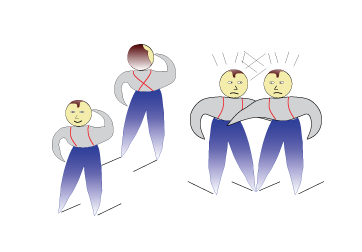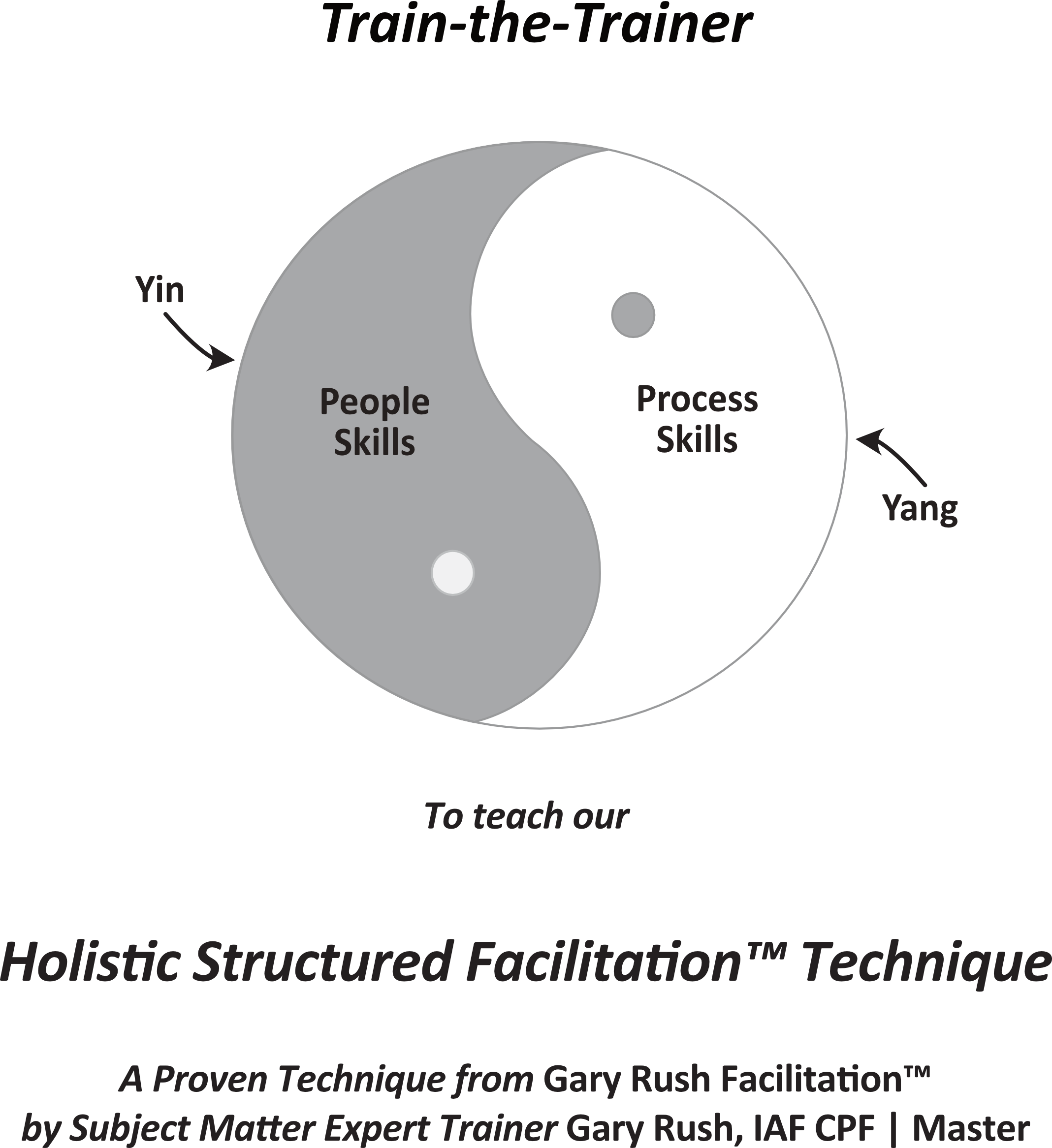April 2015 - The FoCuSeD™ Facilitator eNewsletter

Dealing with Difficult People - Building Trust | Gary Rush Facilitation
People can be difficult and cause problems. How to deal with difficult people is not easy. Sometimes, we’d rather avoid them but that would not solve the problem. Keep in mind that people cause problems for a reason. Few people wake up in the morning thinking about how they can make someone’s life difficult (okay, so some people do but they are the minority). Often the person causing the problem can be productive in a different situation. Once you label someone a “difficult person”, you lose the ability to deal with the problem.
When we say that someone is a “difficult person”, we mean that they are disruptive – ineffective in communicating. To deal with a difficult person, you first need to assume that they have good intentions and you need to identify what is causing the problem. In other words, identify the problem, not the “difficult person”.
The Golden Rule
I have found that the key principle for dealing with difficult people is based on, “Treat others as you wish to be treated.” We must assume that:
- People are intrinsically reasonable.
- People are creative when asked.
- People have different goals in life.
- People don’t like to be blamed.
- People prefer the positive to the negative.
- People respect when they are respected.
- People don’t want to be embarrassed.
- People share similar fears.
I know that my assumptions are optimistic, but I believe that when you approach someone expecting good intentions, you get it, because people tend to live up to the good or bad intentions bestowed on them.
When dealing with people, we often forget that everyone is motivated by:
- A need to control (power motivation).
- People rebel against a loss of control. Whenever someone is working on a task that others perceive as threatening, he or she feels a loss of control and becomes difficult.
- Turf issues. Of course, in organizations this never happens.
- A need to excel (achievement motivation).
- People don’t want to look bad in a group. Whenever someone has a “brilliant” idea that others don’t accept, he or she feels a lack of respect and becomes difficult.
- A need to bond (affiliation motivation).
- People want to be part of the group. Whenever attacks and win-lose situations affect someone’s ability or willingness to bond, he or she becomes difficult.
When one or more of the needs are not met, people display disruptive behaviors. Look to see which need is triggering the behavior. Once you have an understanding of what is motivating the person, use the following guidelines to correct it:
- When one-on-one, talk to the person. When you talk to the person, don’t attack, “You have been very difficult. What is your problem?” You may not get a useful response. Instead, say, “I noticed something is bothering you. What is happening?” You may get a useful response.
- If the need is feeling threatened, understand why he or she feels that way and work together to find a solution that meets that need.
- When in a group, mitigate the symptom by:
- Establishing group behavior norms – e.g., respect each other’s ideas, discuss ideas, not personalities, everyone has wisdom, we are all responsible for the results, etc.
- Using body positioning – stand near or in front of the difficult person when they are attacking – it blocks the discussion so that you can intervene.
- Using eye contact – it lets the person know that you are aware of his or her behavior without having to say anything.
A Lack of Trust
A lack of trust is the common denominator, “I don’t trust that they believe in me”, etc. There are four components to Trust: Character, Competence, Caring, and Communication. We trust someone because:
- We are comfortable with his or her character. This speaks to the need to control.
- We view his or her competence as good or better. This speaks to the need to excel.
- We believe that he or she cares for us. This speaks to the need to bond.
- We communicate well. This speaks to any need.
When we don’t trust, it is because we believe that there are flaws in another’s character, competence, caring, and/or communication. Therefore, Building Trust requires engaging in dialog to understand which component(s) are viewed as flawed and working to change the perception and/or developing understanding. When we engage in dialog, we find, for example, that most “difficult people” are not malicious. Through dialog, you may find out that he or she does not trust the competence of others. That gives you something to deal with rather than labeling, where you lose the ability to deal with the problem.
So…
Treat others as you wish to be treated and you will be successful in dealing with “difficult people”. ![]()


